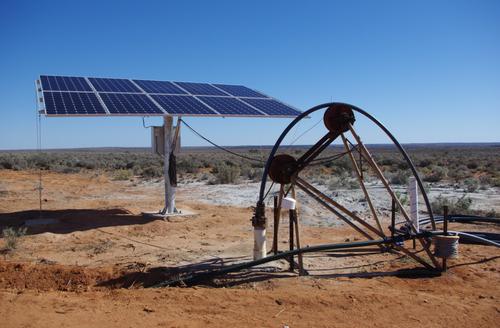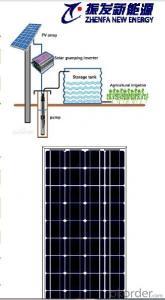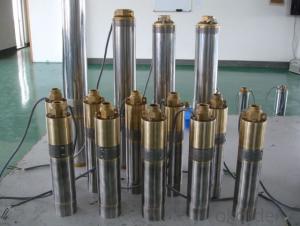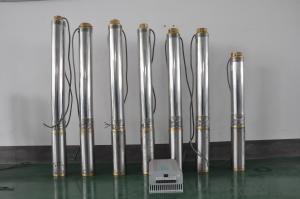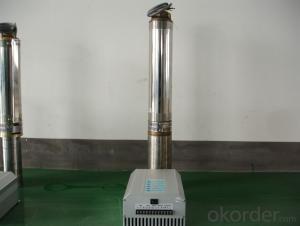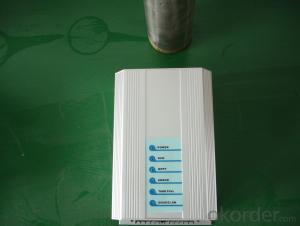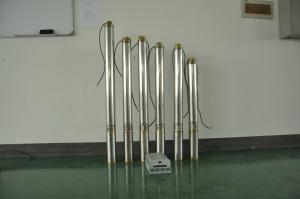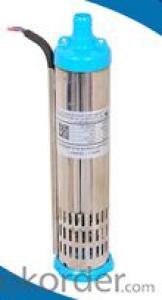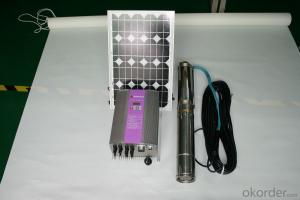5 Hp Solar Borehole Water Pump
- Loading Port:
- Shanghai
- Payment Terms:
- TT OR LC
- Min Order Qty:
- -
- Supply Capability:
- 300 set/month
OKorder Service Pledge
Quality Product, Order Online Tracking, Timely Delivery
OKorder Financial Service
Credit Rating, Credit Services, Credit Purchasing
You Might Also Like
how is the rotor made:
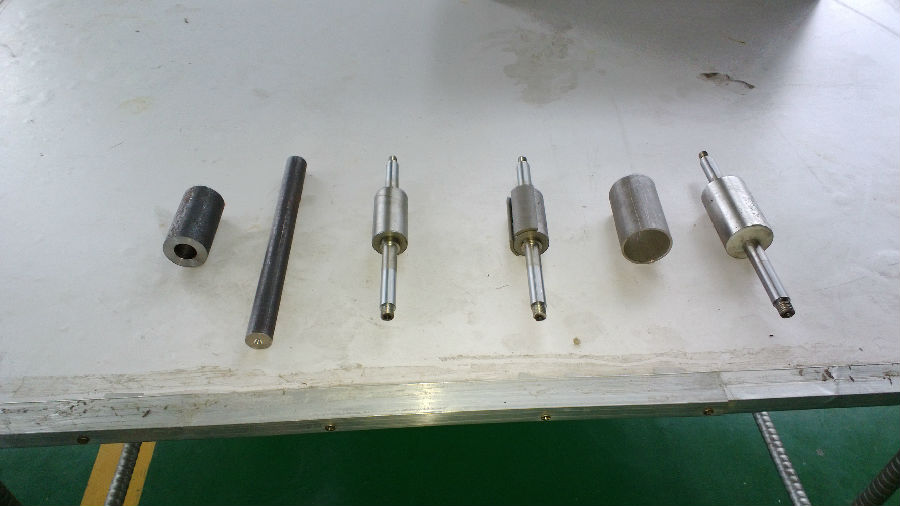
how is the motor made:
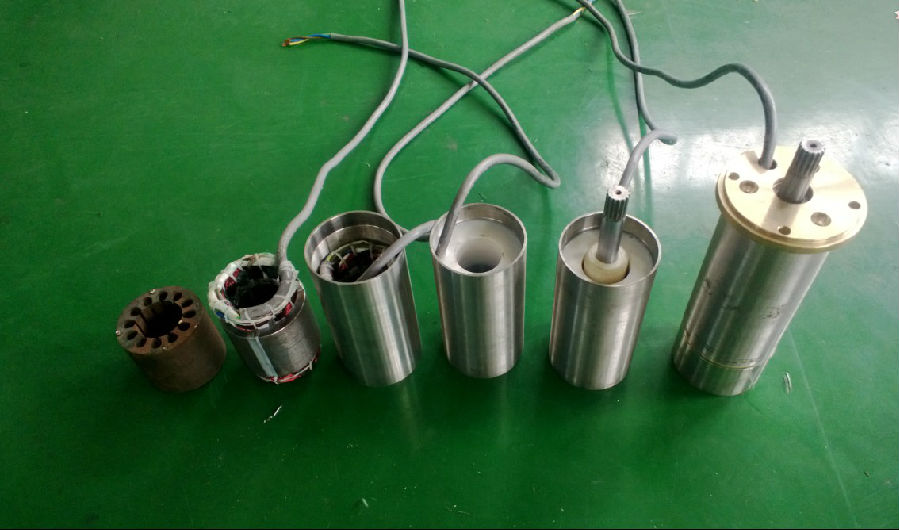
the pump :
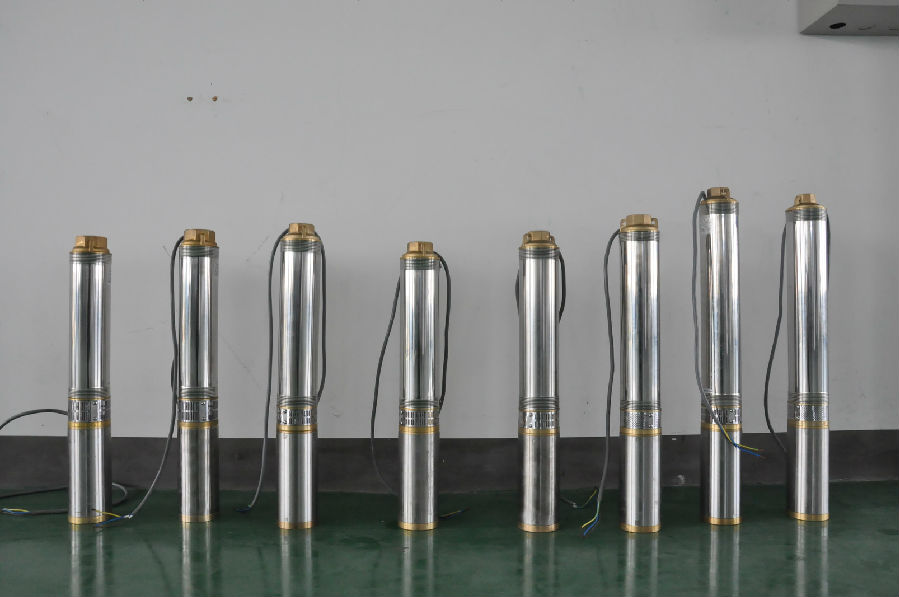
controller terminal connection:
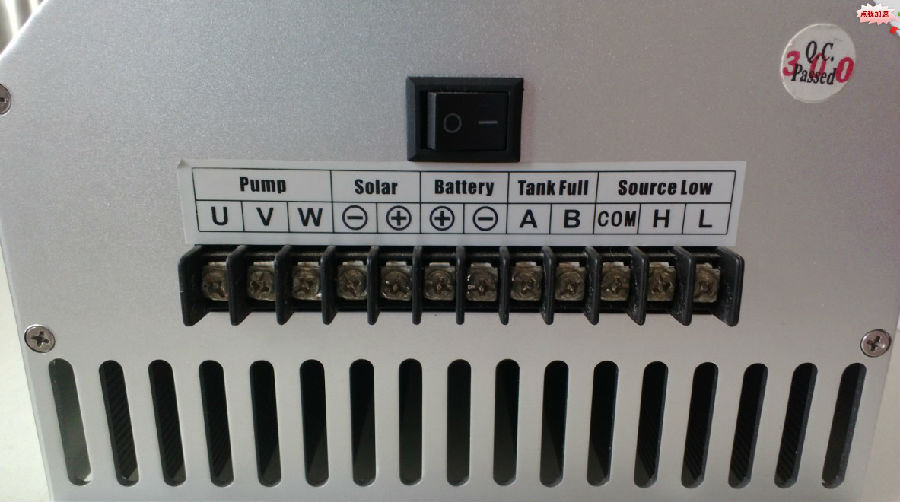
The permanent magnet:
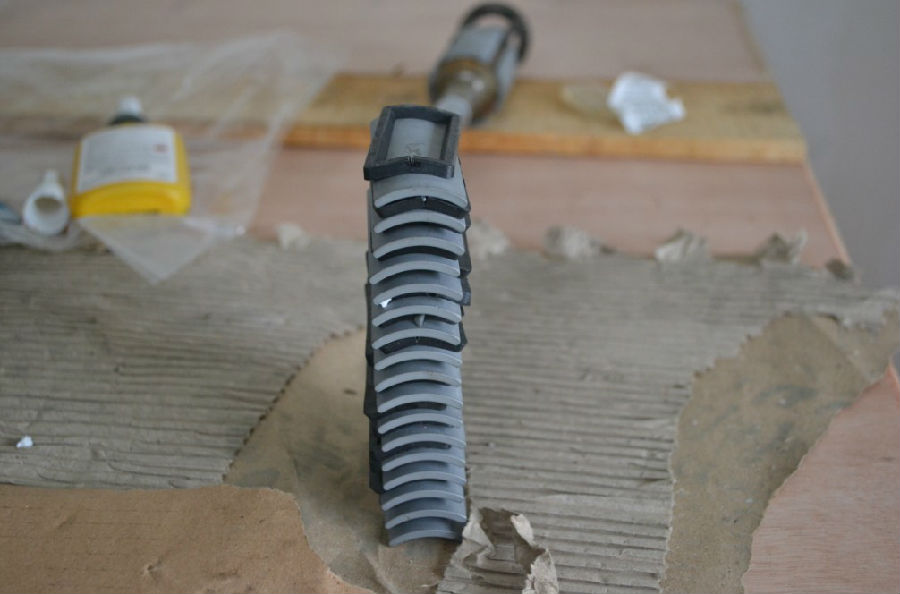
the impeller:
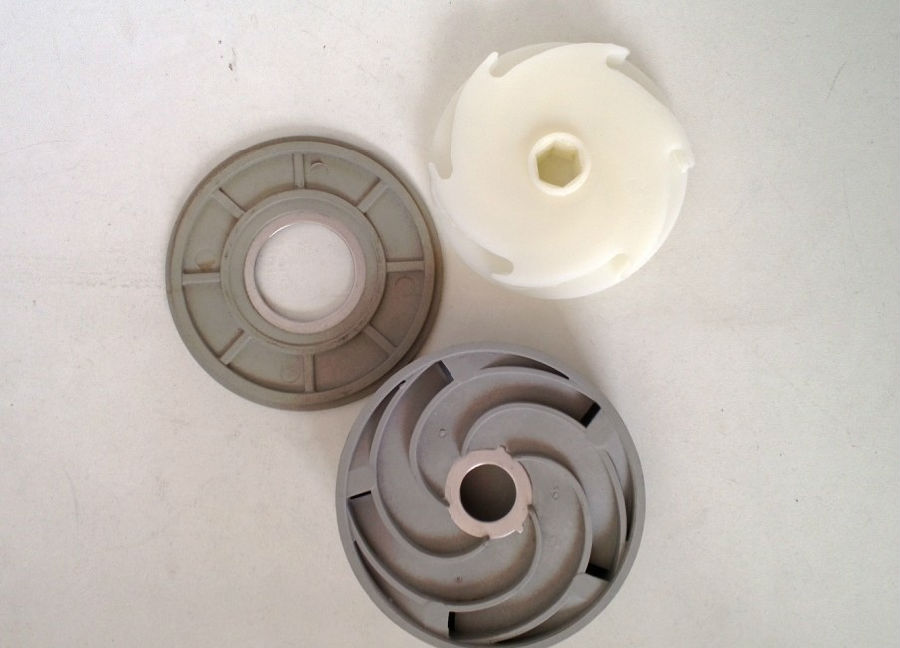
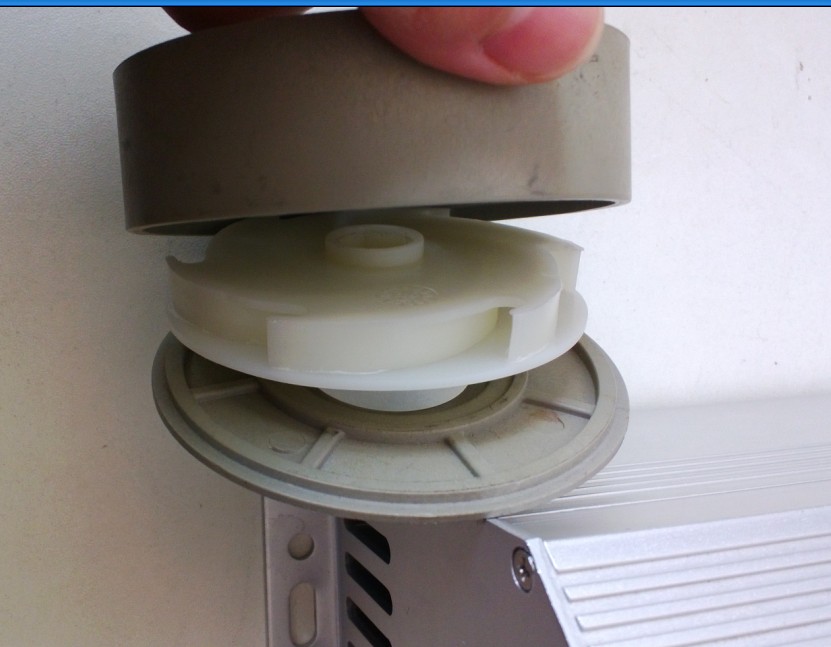
controller box:
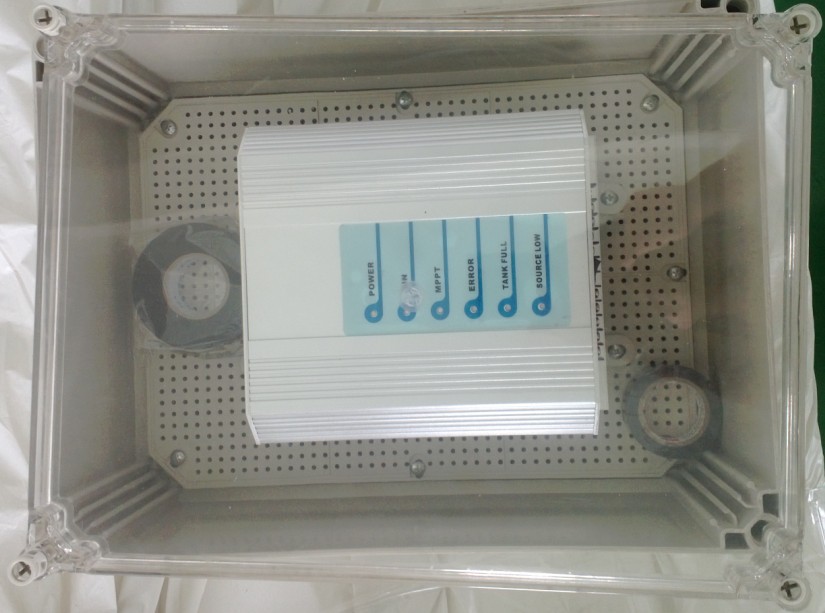
the senors:
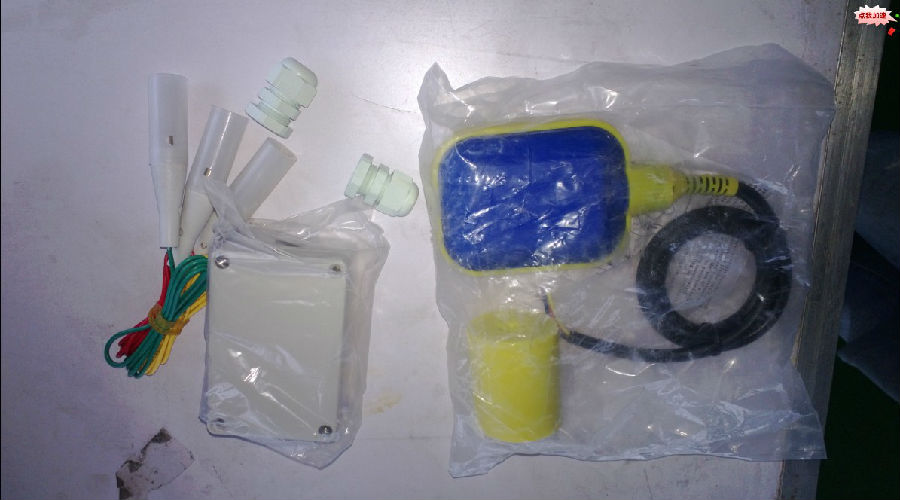
the test:
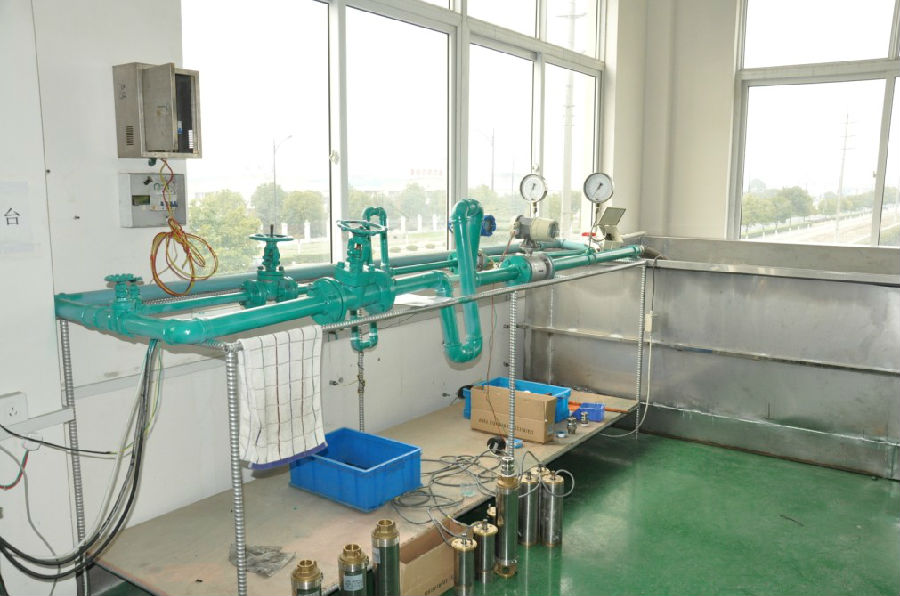
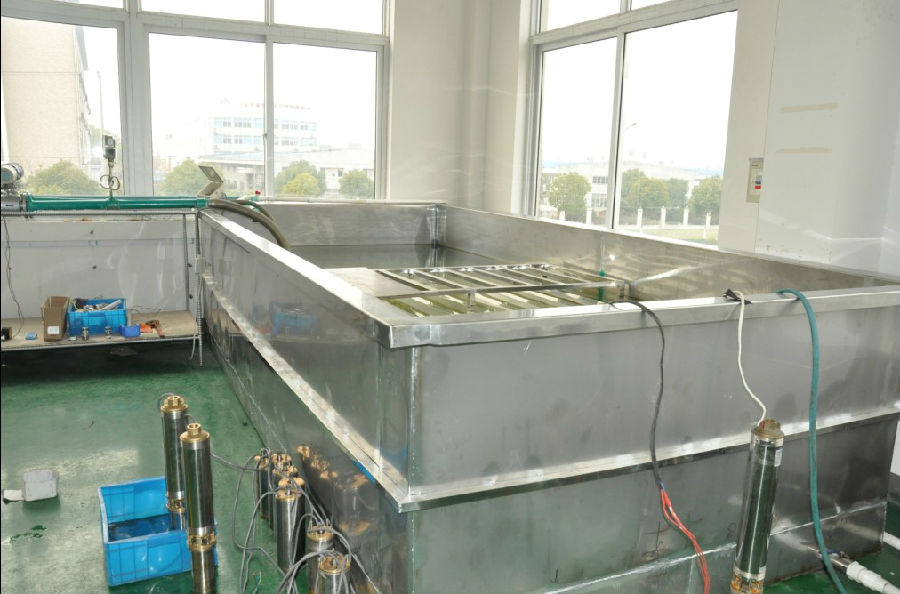
the application:
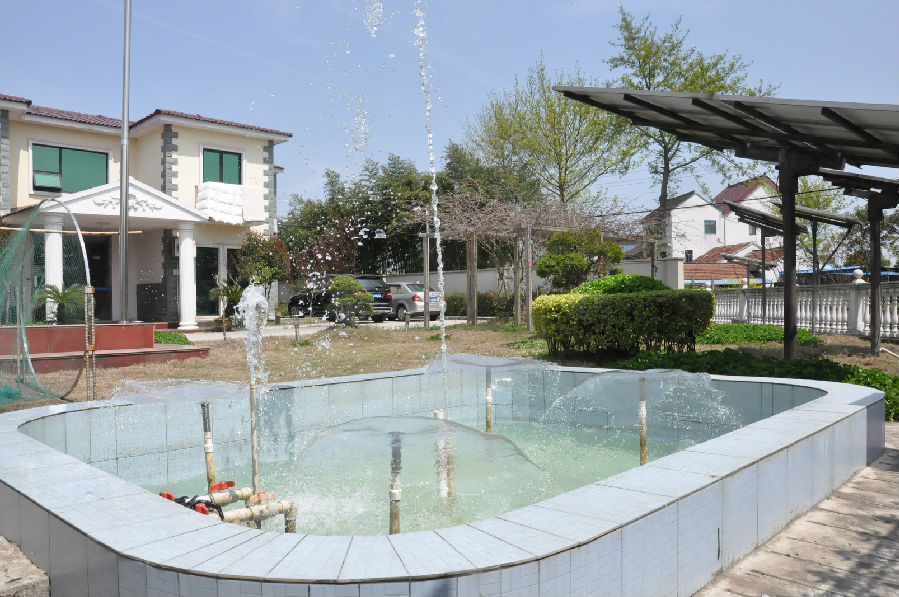
the package:
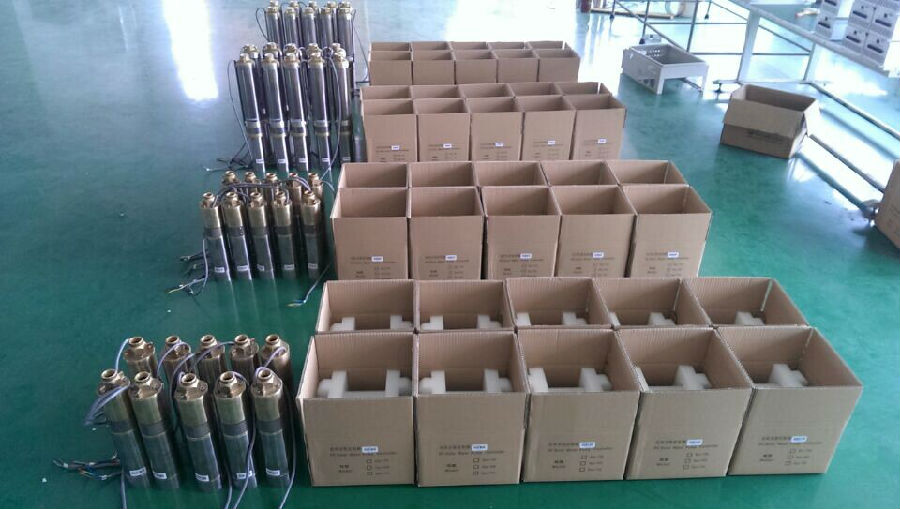
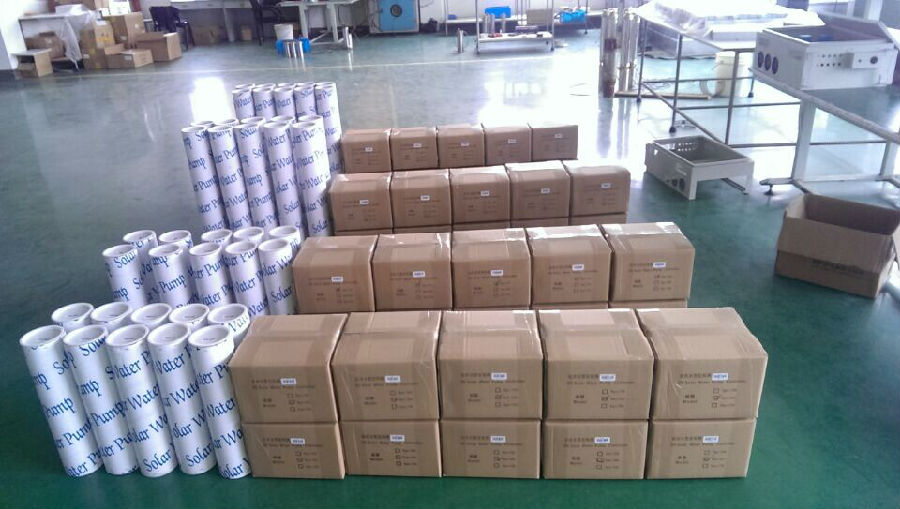
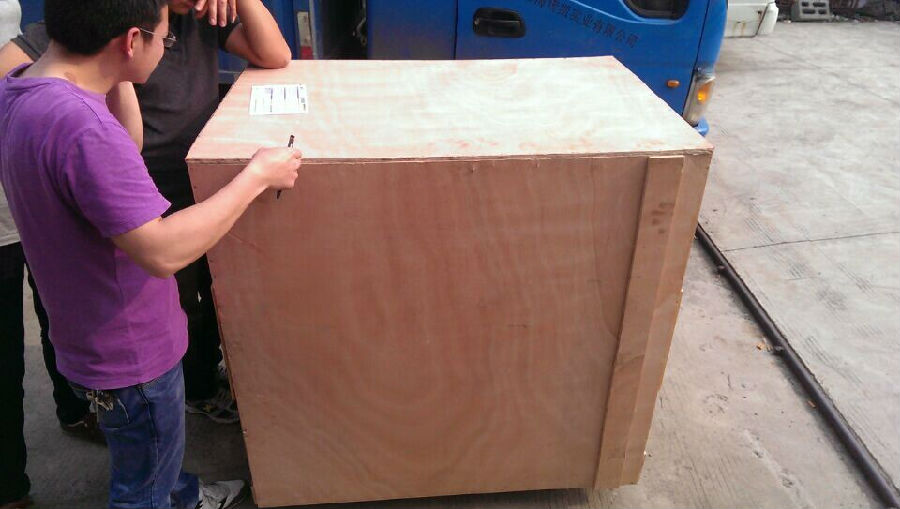
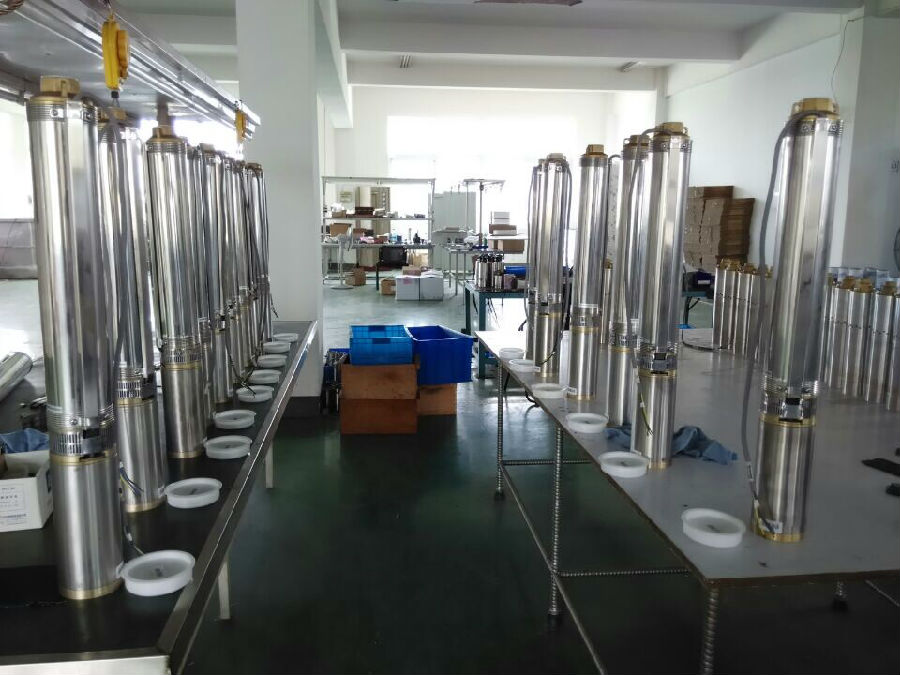
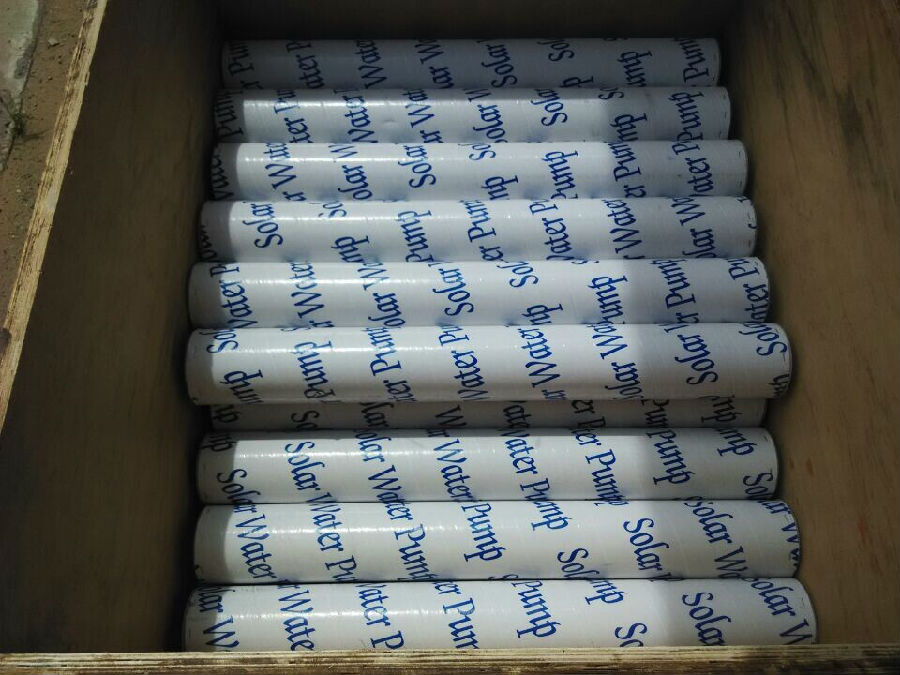
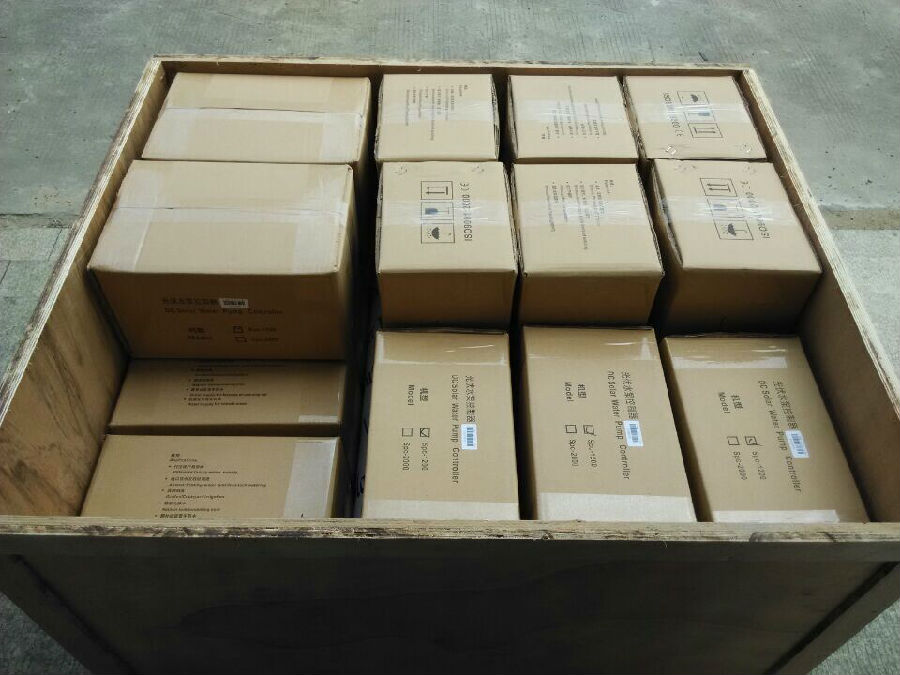
- Q: Can a solar pump be used in areas with limited access to water storage?
- Yes, a solar pump can be used in areas with limited access to water storage. Solar pumps are designed to operate independently of a grid or electricity supply, utilizing solar energy to pump water from a source such as a well or a water body. They can be used in remote areas where access to water storage may be limited, providing a reliable and sustainable solution for water supply.
- Q: Can a solar pump be used for water supply in military or defense operations?
- Yes, a solar pump can be used for water supply in military or defense operations. Solar pumps are a reliable and sustainable option for remote locations where access to electricity may be limited. They can provide a continuous water supply, reducing the reliance on traditional fuel-powered pumps and minimizing logistical challenges. Additionally, solar pumps are quiet, which can be advantageous in military operations where noise reduction is crucial.
- Q: How much space is required for installing a solar pump?
- The space required for installing a solar pump can vary depending on the size and capacity of the pump, but generally, it requires a relatively small area. A typical solar pump system can be installed in an area as small as a few square meters, making it suitable for both residential and commercial applications.
- Q: Can a solar pump be used for livestock cooling systems?
- Yes, a solar pump can be used for livestock cooling systems. Solar pumps are an efficient and sustainable option for providing water circulation and cooling in livestock facilities. They can help maintain a comfortable temperature for the animals by circulating water through cooling pads or misting systems, reducing heat stress and improving overall animal welfare.
- Q: How does a solar pump help in reducing the risk of waterborne illnesses?
- A solar pump helps in reducing the risk of waterborne illnesses by providing a reliable and sustainable source of clean water. It eliminates the need for manual labor or reliance on unreliable electricity sources, ensuring a consistent supply of safe water for drinking, cooking, and sanitation. This reduces the dependence on contaminated water sources, which are often breeding grounds for waterborne diseases, and thus helps in preventing the spread of illnesses caused by pathogens present in unclean water.
- Q: Can a solar pump be used in areas with extreme temperatures?
- Yes, solar pumps can be used in areas with extreme temperatures. However, it is important to consider the specific temperature range and choose a solar pump that is designed to withstand those conditions. Additionally, proper insulation and protection may be required to ensure the longevity and efficiency of the solar pump in extreme temperature environments.
- Q: How long does it take to recoup the investment in a solar pump system?
- The duration required to recover the investment in a solar pump system may vary depending on various factors. These factors encompass the initial cost of the system, the extent of energy savings accomplished, and any applicable incentives or subsidies. Typically, a solar pump system can reimburse its own cost within a span of a few years to a decade. This primarily stems from the considerable reduction in energy expenses associated with utilizing solar power. By harnessing the sun's energy, solar pumps can significantly diminish or entirely eliminate the necessity of electricity or fuel to operate the pump. To ascertain the specific payback period for a solar pump system, one must consider the initial investment cost and compare it to the energy savings achieved. It is crucial to take into account the cost of maintenance and any supplementary expenses linked to the installation and operation of the system. In certain instances, government incentives or subsidies can further abbreviate the payback period. These incentives may encompass tax credits, grants, or feed-in tariffs, which can furnish financial support for the installation and operation of solar pump systems. Ultimately, the payback period for a solar pump system hinges upon the specific circumstances and location. Nonetheless, considering the escalating costs of electricity and the growing affordability of solar technology, investing in a solar pump system can prove to be a financially advantageous decision in the long term.
- Q: How does a solar pump handle water with high levels of arsenic or other toxins?
- A solar pump alone cannot directly handle water with high levels of arsenic or other toxins. However, there are additional treatment methods that can be combined with a solar pump system to address water contaminated with arsenic or other toxins. These treatment methods may include technologies like activated carbon filters, reverse osmosis, or other specialized filtration systems. These additional treatment steps can effectively remove or reduce the levels of toxins, ensuring safe and clean water for various purposes.
- Q: Can a solar pump be used for water supply in disaster-affected areas?
- Yes, a solar pump can be used for water supply in disaster-affected areas. Solar pumps are a reliable and sustainable solution as they are not dependent on electricity grids that may be disrupted during disasters. They can provide a consistent water supply by harnessing solar energy, which is abundant in most disaster-affected regions. Furthermore, solar pumps are easy to install and maintain, making them suitable for emergency response efforts in such areas.
- Q: Can a solar pump be used in areas with high salinity water?
- Yes, a solar pump can be used in areas with high salinity water. Solar pumps are often equipped with a reverse osmosis (RO) system or other filtration mechanisms that can effectively remove salts and impurities from the water, making it suitable for various applications such as irrigation, livestock watering, and drinking water supply.
Send your message to us
5 Hp Solar Borehole Water Pump
- Loading Port:
- Shanghai
- Payment Terms:
- TT OR LC
- Min Order Qty:
- -
- Supply Capability:
- 300 set/month
OKorder Service Pledge
Quality Product, Order Online Tracking, Timely Delivery
OKorder Financial Service
Credit Rating, Credit Services, Credit Purchasing
Similar products
Hot products
Hot Searches
Related keywords

